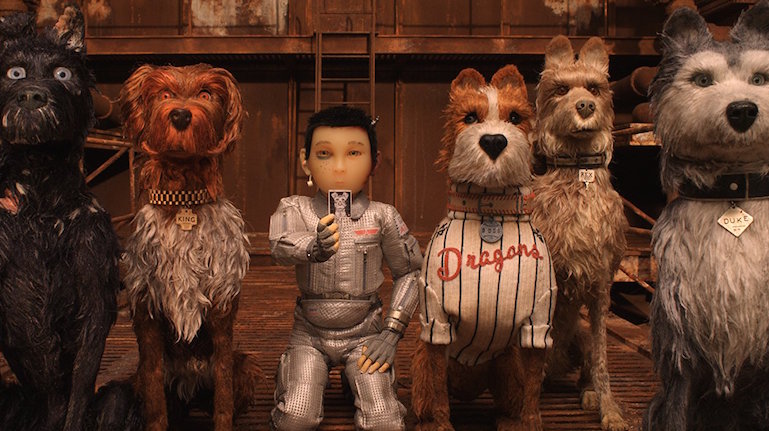Big Screen: Isle of Dogs
April 17th 2018
James Ross

Isle of Dogs is a layered, complex attempt to reflect on the world that we live in, while still retaining the charm that makes Wes Anderson so iconic. If it doesn’t move you, it will at least your pique your curiosity.
Wes Anderson films aren’t what you’d call ‘political’. They’re quirky, whimsical fares filled with oddball families that have daddy issues. Treatises on world affairs they are not. So Isle of Dogs is a bold step, because even though it’s another off-beat comedy filled to the brim with typically Anderson tropes, it’s also his most overtly political movie yet.
The story opens on a dystopic, futuristic Japan, in the fictional Megasaki City. A nearby ‘Trash Island’ has become a detention centre for the city’s canine population, cast out by the authoritarian Mayor Kobayashi. When Kobayashi commits his nephew Atari’s guard dog Spots to the island, Ataris is faced with no choice but to mount a daring rescue. On the island Atari meets five sick, but staunchly democratic, dogs. They vote to help the boy, with a lone voice of dissent coming from Chief; a stray who doesn’t believe in masters. As they journey through the derelict wasteland Chief has to challenge his innate, mongrel nature and overcome his prejudices to save his friends and bring justice to Megasaki City.

It’s a film that operates as something of a fable, allowing Anderson to discuss broader issues about society with his usual stylistic flare. He plays with ideas of free will, discrimination and the displacement of people — using the language barriers between dogs and humans as a metaphor for real life cultural clashes across the globe. It’s a nice change from the more personal, character driven stories of Moonrise Kingdom and The Royal Tenenbaums and I’m glad to see Anderson isn’t afraid to take risks.
Not all of those risks have paid off though. One thing he did that was fairly radical, was to have the Japanese characters speak in their native tongue without subtitles, leading to accusations that Anderson was rendering the Japanese people voiceless in his movie. By foregoing subtitles it also meant that the ‘voice of the oppressed’ in Megasaki City, was an American exchange student named Tracy —encouraging a white saviour narrative that we could definitely do without.
Those accusations raise difficult questions about cultural appropriation, but I’m glad that they’re there. Isle of Dogs is a layered, complex attempt to reflect on the world that we live in, while still retaining the charm that makes Wes Anderson so iconic. For a movie about animated mutts, this one’s surprisingly human.





